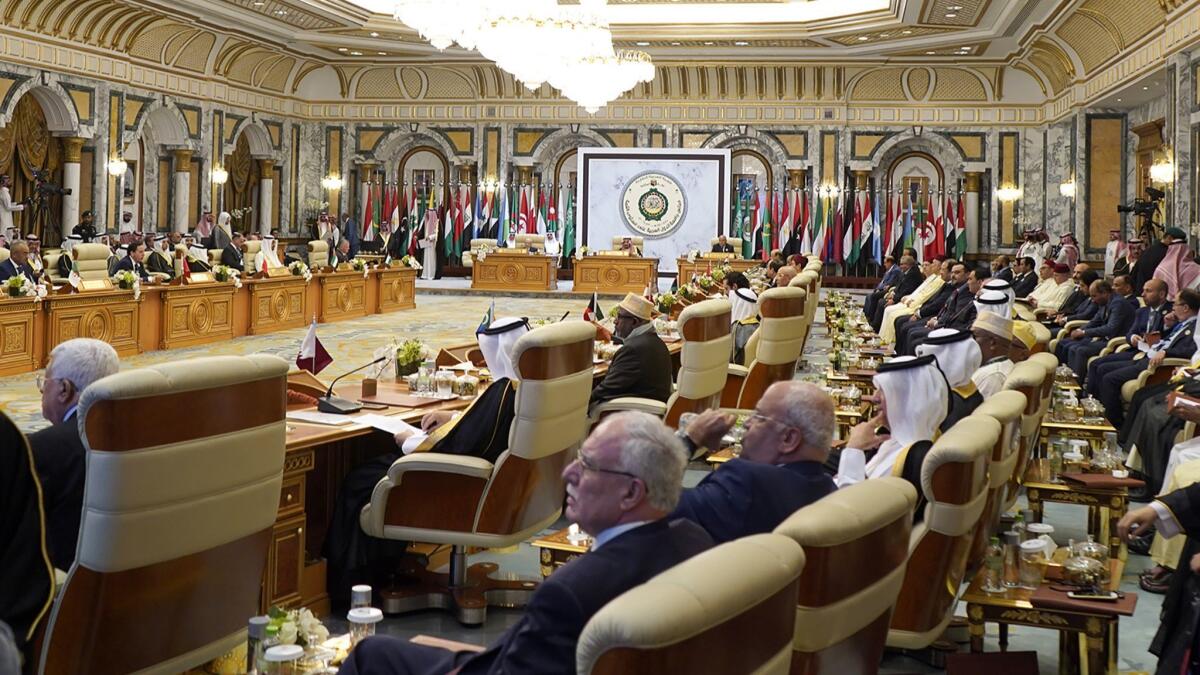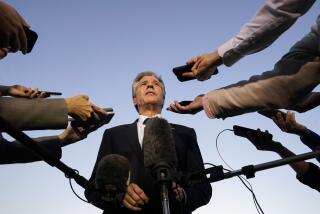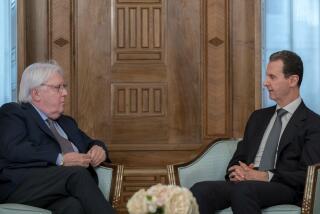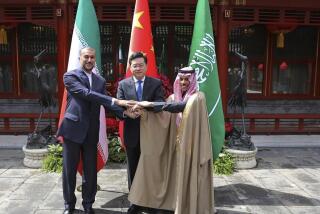Saudi Arabia seeks a united front against Iran, an effort Tehran dismisses as ‘futile’

- Share via
Reporting from Amman, Jordan — Saudi Arabia capped a trio of summits on Friday aimed at rallying support for its anti-Iran stance, even as Tehran dismissed the effort as “futile.”
The summits, which were held over two days in the Saudi city of Mecca and convened the 57-nation Organization of Islamic Cooperation, the 22-member Arab League and the six-nation Gulf Cooperation Council, come after a spate of attacks on oil infrastructure in the Persian Gulf which Saudi Arabia as well as the U.S. have blamed on Iran.
They also come as the Trump administration has ratcheted up pressure on Iran and its allies in the region through economic sanctions as well as troop deployments.
Saudi King Salman was set to open the Organization of Islamic Cooperation summit later Friday. On the agenda, according to local English-language daily Arab News, would be the Palestinian-Israeli conflict as well as tensions in northwest Syria. Yet, like the Arab League and Gulf Cooperation Council summits held earlier, the main focus was Iran.
For his part, Iranian Foreign Ministry spokesman Abbas Mousavi lashed out at Saudi Arabia for “sow[ing] division among Islamic and regional countries,” according to a report by Iranian broadcaster Press TV.
He added that statements in the summits didn’t “necessarily reflect the real stance of all member states.”
“We see attempts by Saudi Arabia to rally neighboring and Arab countries against Iran as the continuation of futile attempts by America and the Zionist regime against the Islamic Republic,” Mousavi said, utilizing Tehran’s routine term for the Israeli government.
Earlier on Friday, Salman had kicked off a stream of statements from Arab and Gulf leaders excoriating Tehran for what he described as “machinations and terrorist acts … in order to undermine Arab security,” according to a report by the state-run Saudi Press Agency.
He also demanded the international community “use all means to deter this regime and limit its expansionism.”
“The lack of a deterrent and firm stance to confront these terrorist acts of the Iranian regime in the region has led the Iranian regime to continue and escalate these acts as we see today,” Salman said.
Yet that firm stance against Iran did not seem to be forthcoming, even during the summits’ proceedings.
Though most Arab leaders — many of them clients of Saudi Arabia — were quick to echo the Saudi monarch’s statements, others were less enthusiastic.
Iraq, long viewed as a proxy battlefield between Iran and the U.S. and its allies, outright rejected the strident tone of the Arab League’s final statement, with Iraqi President Barham Salih refusing to sign it even as he insisted Iran’s security must not be threatened.
Other fault lines also appeared: Qatar, which has been ostracized by neighboring Gulf states since 2017, dispatched Prime Minister Sheikh Abdullah bin Nasser al Thani in response to an invitation from Saudi Arabia.
Yet the thaw only went so far. Thani appeared to ignore Saudi and Emirati officials and was rushed into a handshake with King Salman only after urging by Kuwaiti Emir Sheik Sabah al Ahmed al Jabbar al Sabah.
Meanwhile, other countries, including Oman and Turkey, have their own links to Tehran, while the latter is engaged in a shadow war against Saudi Arabia and the UAE in Libya and Sudan.
More to Read
Sign up for Essential California
The most important California stories and recommendations in your inbox every morning.
You may occasionally receive promotional content from the Los Angeles Times.














